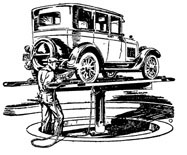
Understanding the Pedophilia Crisis in the Boston Priesthood
THE ISSUE IS HOMOSEXUALITY
The headlines are consistently dismal. One day it is the revelation that two Jesuits who taught at Boston College High School are among those suspended from priestly duties on accusations of pedophilia. Then it was revealed that the Archdiocese of Boston may shell out up to $30 million to settle the claims against defrocked priest John Geoghan, who allegedly molested some 86 boys over thirty years. Prominent Catholics call on Cardinal Law to resign. Meanwhile, liberal pressure groups take the opportunity to blame the whole thing on priestly celibacy and the doctrine of an all-male priesthood.
This isn’t just Boston’s problem. It has already come, or will soon come, to a diocese near you or to your own diocese. Although Boston has been the focus of the problem, priestly pedophilia (in the sense of sexually violating prepubescent or postpubescent youth) can be found throughout the Church. Boston is an old archdiocese, very large, with substantial (though declining) influence in politics and lots of personnel and property concentrated in a small area. Boston’s way of dealing with the problem over the years appears to have been nearly universal throughout the American Church.
Boston has just under 1,000 active priests. As of this writing, the Archdiocese has turned over the names of some 87 current and former priests to prosecutors for criminal investigation. The continued availability of insurance to indemnify the Archdiocese is doubtful. Press coverage is just this side of continuous, and very aggressive. Plaintiffs’ lawyers, scenting huge settlements, are eagerly raking over fifty years of records. There is even an outside chance that the Cardinal himself could be indicted as an accessory for his policy of shunting accused pedophile priests from parish to parish.
To understand what is going on, we need to understand a few things about Boston, its culture and above all its Archdiocese. But first let me deal with my own point of view. It is inevitable that someone who offers criticism of the Church will be labeled as anti-Catholic by the uninformed, a scandalmonger by those who think the laity should just shut up about scandals in the Church and let the priests deal with them, or, worst of all, a liberal by those who believe in absolutely blind obedience to the priests and hierarchy. I am none of these. My views are orthodox and “high Church,” even ultramontane. Though the product of Catholic schools from first grade through the third year of law school, I picked up most of what I know about the Church and the Faith on my own. I am a lifelong Bostonian. I don’t know anyone who claims to have been abused by a priest. I don’t know of any accusations against priests who served in the parish I grew up in, or in my current parish. My own experiences with the Church and her priests have been overwhelmingly positive. I admire the highest reaches of the hierarchy, and revere the traditions of the Church. I am not using this discussion as a way to push any liberal “reform.”
You May Also Enjoy
The Catholic Church's sex-abuse problem is caused by predators who wear clerical collars and who are protected by a clericalist culture.
Belloc observed that the Church could not be a purely human institution, as “no purely human institution conducted with such knavish imbecility could last a fortnight.”
Yep, we're talking about the disgraced Archbishop Rembert G. Weakland.

